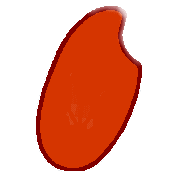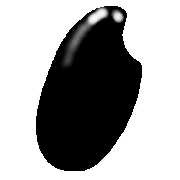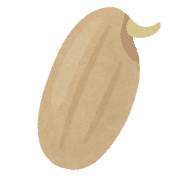| [Glutinous rice] |
The ratio of amylopectin to amylose starch determines whether the rice
is leachy or glutinous. Glutinous rice is stickier than white rice, and
its amylose content reduces the absorption of sugar and fat. |
 |
| [Uruchi rice] |
It is a type of white rice that is commonly eaten daily in Japan. |
 |
| [White rice] |
When the husk is removed from the unhulled rice, it is called brown rice,
and when the brown rice is polished to remove the germ and bran layer,
it is called white rice, also known as polished rice. |
| [Red rice] |
A group of rice varieties that contain a tannin-based red pigment in the seed coat of brown rice is called red rice, and is a type of pigmented rice. It is said that most of the wild rice was red rice. |
 |
| [Black rice] |
Black rice is resistant to environmental changes, growing strong even in
rough terrain or in soil without fertilizers or pesticides, and is also
resistant to drought and cold damage. Compared to regular varieties and
red rice, black rice has a higher germination rate when stored at room
temperature for long periods of time, and has excellent storage and preservation
properties. |
 |
| [Sprouted rice, sprouted brown rice] |
Brown rice is germinated by soaking it in warm water. It contains a lot
of vitamins, iron, dietary fiber and other nutrients, making it healthier
and more nutritious than brown rice. |
 |

